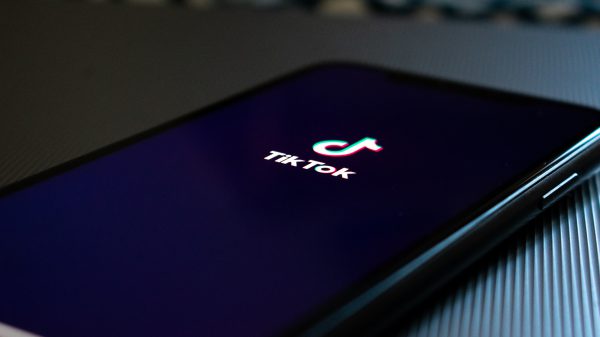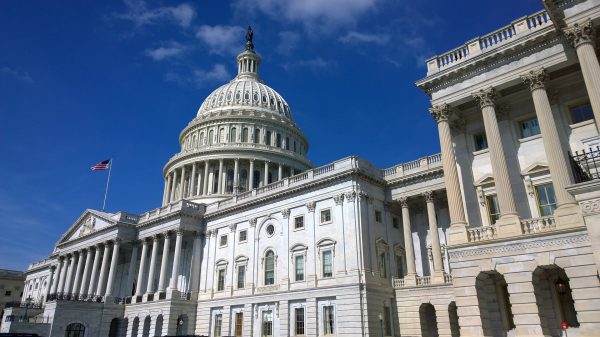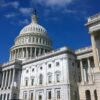In a lawsuit filed on Wednesday, social media platform Parler has claimed that Amazon Web Services (AWS) has used its position to stifle competition when it banned the platform from its cloud servers. While the right-wing social media platform says that AWS is in violation of its own policies, Amazon says that Parler was slow to act on content that threatened violence.
Parler, the alt-tech micro-blogging and social network platform, surfaced in August 2018 as an alternative to Twitter and other social media websites over allegations that the tech and social media giants were censoring right-wing political content on their websites. The company claims to have over 12 million users. While its user-base was growing over the last few years, it began to surge in 2020 once social media websites began censoring tweets of Donald Trump, the outgoing US President, and other right-wing personalities and commentators. Further, once Twitter, Facebook, Instagram and YouTube actively began taking down content related to QAnon, the anonymous conspiracy theory entity or ecosystem, Parler saw more users come on board.
While an alternative social media platform dedicated to right-wing opinion is seemingly inconsequential to the scale that Twitter and Facebook command over the global internet user base, in the wake of the riots and storming of the US Capitol building on January 6, tech companies have begun to ban the platform. Google and Apple have both removed the app from their app stores.
On its part, on Monday Amazon cut off the company from its cloud server platform, AWS, stating that it failed to effectively deal with a “steady increase in violent content” and due to a “very real risk to public safety”. On January 11, Parler filed a motion seeking a temporary restraining order against Amazon’s action in the district court of Washington at Seattle.
MediaNama has reviewed submissions made by Parler LLC and Amazon Web Services Inc. put forward in relation to temporary restraining order.
Amazon’s rationale for shutting server access
According to submissions made by AWS, this is not a case of suppressing free speech or restraining trade.
“Instead, this case is about Parler’s demonstrated unwillingness and inability to remove from the servers of Amazon Web Services (“AWS”) content that threatens the public safety, such as by inciting and planning the rape, torture, and assassination of named public officials and private citizens. There is no legal basis in AWS’s customer agreements or otherwise to compel AWS to host content of this nature,” it said. [emphasis ours]
AWS says it had notified Parler repeatedly that its content violated the agreement and had asked the company to remove some content, but the company was allegedly non-compliant. “AWS suspended Parler’s account as a last resort to prevent further access to such content, including plans for violence to disrupt the impending Presidential transition,” it said.
Parler had signed up with AWS in June 2018 for hosting its platform on the cloud, and as a result it accepted AWS’ Customer Agreement. “The Agreement requires that Parler ‘ensure that Your Content and your and End Users’ use of Your Content or the Service Offerings will not violate any of the Policies or any applicable law,” and makes clear that Parler is “solely responsible for the development, content, operation, maintenance, and use of” the material on its service,” AWS said citing its policy.
Yet from mid-November 2020 onwards, AWS found several instances of content on the platform that was threatening violence and brought these to the notice of the company. Over the next seven weeks, AWS found more than 100 instances of content threatening violence.
Post the events of January 6, AWS began finding similar content and also spoke to the company’s executives about its “moderation policies, processes, and tools, and emphasized that Parler’s current approach failed to address Parler’s duty to promptly identify and remove content that threatened or encouraged violence”. The filing says that Parler admitted that it had a backlog of 26,000 reports of content that were still on its servers that violated its community standards.
According to AWS, Parler operates on a “laissez-faire” philosophy when it comes to content moderation, as a result of which there is no curation, moderation or fact-checking. It said that it is well within its rights to suspend Parler’s access to AWS’ services as the platform poses a “security risk and harms others”.
Parler says termination from server was illegitimate
In its submission to the court, Parler says that while AWS has claimed it has suspended the company’s access to the cloud servers in actuality it has terminated the service. This is in breach of the agreement between Parler and AWS which states that termination can take place only after a 30-day notice period. “At no time before January 9, 2021, did AWS notify Parler that Parler was in material breach of the Agreement, thus blindsiding Parler. And in the period up until then, AWS implicitly assured Parler that the two companies had a positive relationship that would continue into 2021,” it said.
Despite the fact that the email from AWS to Parler said that the platform was ‘suspended and not terminated’ from the cloud server, “AWS made it clear that there was nothing Parler could do to continue its relationship with AWS and that this was no mere temporary suspension,” it said. The company alleges that AWS and Amazon are under pressure from employees who are supporters of progressive politics and are using the January 6 events to stifle conservative voices.
Parler also refuted claims that it acted slowly on removing content that was encouraging violence, that AWS had flagged to the company. It added that between January 6 and 8, AWS did not express concerns over Parler’s content moderation policies. In fact, the two companies were in constant communication from December onward and only stopped once Trump was kicked off Twitter, it said.
“After Twitter banned President Trump on January 8, the increased new users and activity caused Parler to go down for seven hours, resulting in a backlog of 26,000 instances of content that potentially encouraged violence. However, over the next two days, Parler was able to systematically remove almost all of this content, which progress was reported to AWS, and within 48 hours by the end of Sunday—when AWS shut Parler down—Parler had removed all but some 1,000 problematic posts,” it said.
Parler also added that it was working on introducing artificial intelligence tools for content moderation on the platform, something that AWS was aware of since December last year.
In its submission, Parler says that Amazon has violated the Sherman Act and is using its position to kill competition. “Indeed, Amazon and Twitter, as two of the largest tech companies in the world, with a mutually beneficial contractual relationship, had a clear interest in eliminating an up-and-coming service like Parler with such a demonstrable market,” it said.
“In completely shutting down Parler’s ability to retain its millions of users, attract advertisers, or generate any revenue, AWS has knowingly inflicted lasting damage to what was, until very recently, a thriving business,” Parler said, requesting the court to grant a temporary restraining order against AWS to avoid the closure of the platform.
Also read:

















